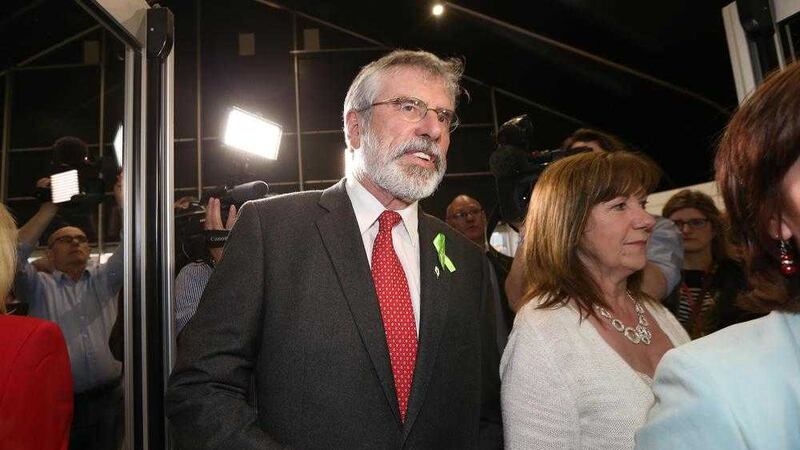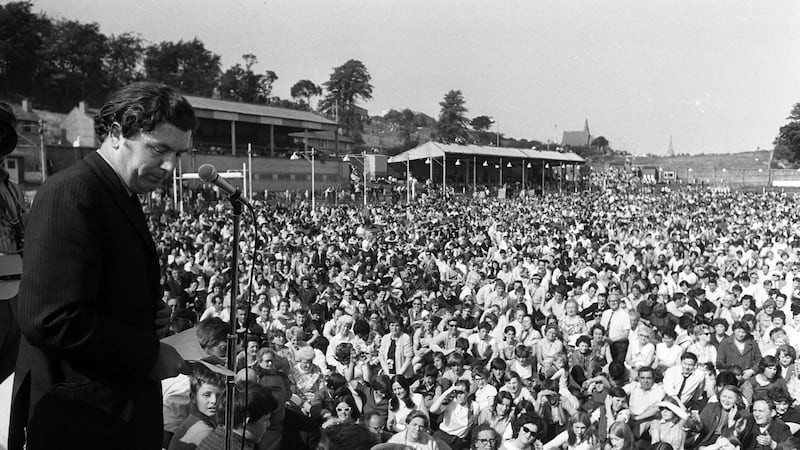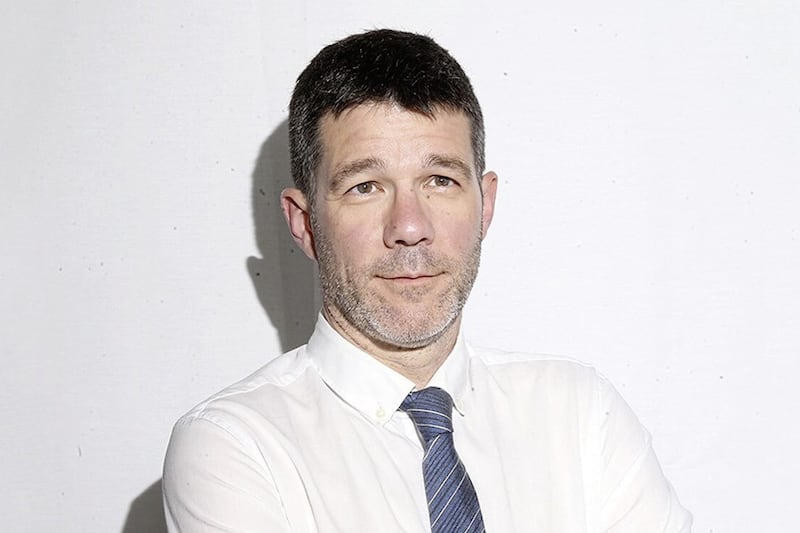THE DUP and Sinn Féin look set to maintain their grip on power at Stormont following Thursday's election.
However, nationalism has again seen its share of the overall vote slip, with Sinn Féin hit hardest as some voters opted for smaller parties.
Sinn Féin remains the largest nationalist party, but its vote was down by around 2.9 per cent.
The SDLP saw its vote drop by around 2.2 per cent with the loss of party stalwarts including Foyle's Gerard Diver and deputy leader Fearghal McKinney in South Belfast.
Several other SDLP MLAs including former deputy leader Dolores Kelly looked in danger of losing their seats on Friday night. There were predictions that the party could lose up to five seats.
The nationalist vote overall dropped by 5.1 per cent, with a significant slice of its traditional support thought to have migrated to the ascendant People Before Profit, which topped the poll in the republican heartland of West Belfast.
Despite a high-profile loss to PBP's Gerry Carroll in his former Westminster seat, Sinn Féin leader Gerry Adams said on Friday night that his party will return with the same number of seats overall.
It was a good election for the DUP, with Arlene Foster seeing her party's support hold firm in her first campaign as leader.
"I'm absolutely elated," she said last night. "We've had some very strong results."
Ms Foster and colleague William Irwin topped the poll in Fermanagh & South Tyrone and Newry & Armagh respectively.
Former DUP representative turned Ulster Unionist Jenny Palmer grabbed a seat in Lagan Valley at the expense of the DUP's Jonathan Craig. But the UUP's Adrian Cochrane-Watson lost his seat in South Antrim.
Ulster Unionist leader Mike Nesbitt, who topped the poll in Strangford poll, admitted his prediction of the number of seats his party would win had been "ambitious".
The Ulster Unionists failed to make the gains Mr Nesbitt had predicted.
The biggest change in the election has been the rise of two smaller parties who stand outside traditional community allegiances - People Before Profit and the Green Party. Both were expected to have two MLAs apiece when counting finishes.
The assembly is now due to have the fewest nationalist MLAs since the Good Friday Agreement.
PBP's Mr Carroll polled strongly in Sinn Féin's West Belfast stronghold, meaning that the nationalist party lost one of its five seats in the constituency.
Indeed it would have taken a huge vote to top Mr Carroll, who won the seat with the second-highest first preference vote in the elections.
Mr Carroll had a personal vote of more than 8,000 – second only to DUP leader Arlene Foster.
His party now look set to join the assembly for the first time with two seats - the second expected to be taken in Foyle by veteran campaigner, 73-year-old Eamonn McCann, who first entered electoral politics in 1969.
Mr McCann's win was at the expense of Sinn Féin's Maeve McLaughlin who failed to be returned to Stormont.
SDLP stalwart Gerard Diver also lost out in the same constituency - a huge blow to the party in its heartland.
It was a poor election for many candidates who decided to leave established parties. John McCallister, who had served as an MLA for almost a decade, failed to be re-elected as an Independent Unionist in South Down.
TUV leader Jim Allister's vote held strong and he was the first assembly member to be returned for North Antrim.
However his personal success did not translate to votes for his party colleagues and he looks set to remain as the only TUV MLA.
A number of others, including the Alliance Party's Naomi Long and Sinn Fein's Michelle Gildernew will be making a return to the Stormont benches after previously serving as MPs.
Jenny Palmer, who quit the DUP amid allegations she had been bullied, took a seat from her former party when she was elected for the Ulster Unionists in Lagan Valley.
Former DUP Health Minister Jim Wells, who was embroiled in a series of controversies in the last term, was also re-elected in South Down.
The overall turnout of valid and invalid votes has fallen on the 2011 Assembly election, but only slightly. More votes were actually cast than five years ago, but in the context of a larger electorate.
In 2011, 674,103 people went to the polls out of an electorate of 1,210,009 - a turnout of 55.71%. This year, 703,744 ballots were cast out of an electorate of 1,281,595 - giving a 54.91% turnout.








